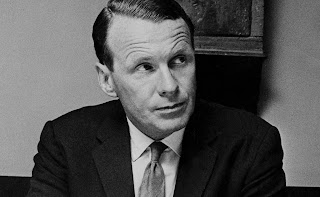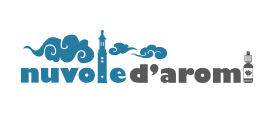From a famous advertiser 10 rules for good writing. Are his recommendations always valid?
From the 80s advice designed for copywriting and advertising, but which adapt to any type of writing.
Writing tips from famous writers have always been in vogue as useful content for aspiring writers and beyond.
If at first I appreciated them, then I was a little wary of them, because, apart from some universally valid advice, the rest was valid for the author in question and it is not said that it is valid for everyone.
I found many articles, in Italian and English, on writing tips from David Ogilvy and I wanted to see how useful they were to writers and bloggers today.
Who is David Ogilvy?
He was a British advertising executive, famous for his creative writing and referred to as "the father of advertising", owner of one of the most famous and largest advertising agencies in the world, Ogilvy & Mather.
He became an inspiration to many advertisers and had a major impact on the advertising business after World War II. Ogilvy was born in 1911.
So other times. What does that have to do with anything? Simple: the world has changed since Ogilvy's time. Today, for example, we have the internet, which simplifies work in many fields.
10 writing tips from David Ogilvy
This advice comes from a memo that Ogilvy wrote and circulated through his advertising agency on September 7, 1982. It was introduced by the following text:
If everyone in our company took a writing exam, the highest marks would go to the 14 Directors.
The better you write, the higher you'll go to Ogilvy & Mather. Who thinks well, writes well.
The fuzzy-minded write fuzzy memos, fuzzy letters, and fuzzy speeches.
Good writing is not a natural gift. You must learn to write well.
I have not done a literal translation of Ogilvy's various advice, but, in some cases, I have adapted it better to the context of the writing. I agree with almost everything.
1. Read Roman-Raphaelson's book on writing. Read it 3 times
Read the Roman-Raphaelson book on writing. Read it three times
These are Writing That Works; How to Communicate Effectively In Business by Kenneth Roman and Joel Raphaelson. The title, translated, is The writing that works; How to Communicate Effectively in Business .
In this guide, we cover writing business memos, letters, reports, speeches, resumes and emails, proposals and presentations, plans and reports, fundraising letters and sales letters that drive results. It is therefore a specific book for copywriters , not really for anyone who writes.
But the book also talks about "insights into political correctness and tips for using impartial language that doesn't compromise your message." And on this, on politically correct language, I absolutely disagree.
2. Write naturally
Write the way you talk. Naturally
Write as we speak. In my opinion this advice is at odds with a part of the book recommended above. I write like I speak, but I don't write in a politically correct or inclusive way.
I actually write as I speak here on the blog, but when I write fiction, then I write as I believe fiction should be written: cultivating a writing style that is appropriate to the story and the literary genre.
3. Use short words, short sentences and short paragraphs
Use short words, short sentences and short paragraphs
This has become one of the rules of writing for the web and I generally agree. However, it is not a rule that I always follow when I write for the blog.
The risk is to limit one's vocabulary. Another risk, writing only short sentences, is to give an almost frenetic pace to the text.
In short, neither fiction nor blogs are suitable for telegraphic writing. In advertising it is certainly more than valid advice, however, because it is based on the immediacy of language.
4. Never use technicalities
Never use jargon words like reconceptualize, demassification, attitudinally, judgmentally
Can we agree with this advice? Yes and no, in my opinion. Again: in advertising speech it is undoubtedly acceptable not to use technicalities, but in other areas of writing, such as blogs, if you need to use them, you use them.
It's not a matter of being pretentious. You can't imprison words, just because someone doesn't know them. Vocabularies exist to fill certain gaps.
5. Don't write too much on one topic
Never write more than two pages on any subject
Ogilvy even talks about no more than 2 pages. It actually means writing no more than necessary , and he's right about that.
This advice is perfectly suited to writing for the web, in which it is better not to open continuous parentheses, to insert off-topic paragraphs that only lengthen the broth without giving anything useful to readers.
6. Check the quotes
Check your quotes
Well said! How many quotes have I found on the net now attributed to one character and now to another. Yet today, thanks to the web, it is certainly not difficult to trace the real authorship of a quote.
Choosing a quote is a long job, because you have to check the source well. Perhaps in Ogilvy's time it was more difficult to detect the error, but today it has become very easy.
7. Never send what you write on the day
Never send a letter or a memo on the day you write it. Read it aloud the next morning—and then edit it
Read it aloud the next morning and then edit it. Many people recommend rereading their writings aloud: the sound of the words certainly gives a different effect from simply rereading them in mind.
I very much agree on the first point, which lends itself to different contexts. For example, don't send your book manuscript to a publisher the day you finish writing it.
8. If it's something important, ask someone to improve it
If it is something important, get a colleague to improve it
This advice also lends itself to different interpretations. In the field of creative writing that someone is represented by proofreaders and editors.
Ogilvy was talking about colleagues, no doubt referring to colleagues in an advertising agency. But obviously we can extend that "colleague" to any of our acquaintances who, in a certain field, know more than we do.
9. Before sending what you write, make sure the recipient knows what to do
Before you send your letter or your memo, make sure it is crystal clear what you want the recipient to do
In advertising, an unclear, non-"crystalline" message would be counterproductive. We can also paraphrase this advice to fit writing in general: “Before you publish what you write, make sure the reader understands.”
If Ogilvy was referring to potential customers (recipients of the advertising message), we can refer to our readers (recipients, after all, of our articles, our books, our newsletters, etc.).
10. If you want ACTION, don't write
If you want ACTION, don't write. Go and tell the guy what you want
Go directly to the person and tell them what you want. More than a writing advice, it's an invitation not to write.
We can interpret it as advice against the obsessive use of instant messaging, which, if on the one hand it has speeded up communication, on the other it has disintegrated interpersonal relationships.
Email, WhatsApp, private messages on social networks - like text messages once upon a time - are not the new tools of socialization, but powerful tools of marginalization (in the most extreme cases) and individual isolation.
When you subscribe to the blog, we will send you an e-mail when there are new updates on the site so you wouldn't miss them.
By accepting you will be accessing a service provided by a third-party external to https://www.insightadv.it/



































































Comments